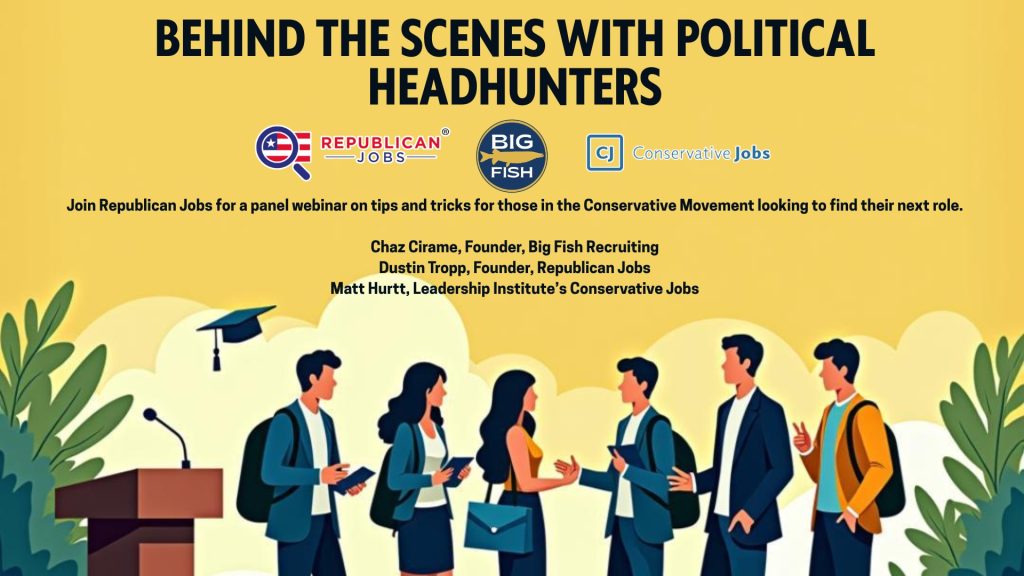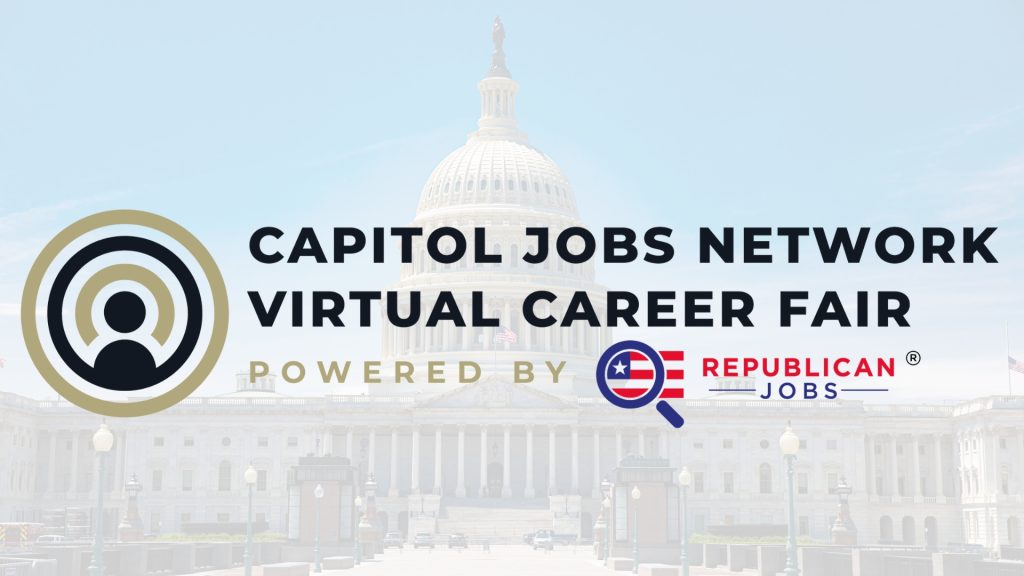
Tips for Working with a Recruiter from a Republican Jobs Perspective (Part 2)
Read Part 1 here.
- Help Us Help You – Don’t Make It Harder for a Recruiter to Refer You
Many times, I’ve seen someone fail to find success because it took them a week to get back to us, and the role was filled by then. If a recruiter has to hunt you down, they’re likely to move on. The same way you shouldn’t ‘put all your eggs in one basket’ in a job search, recruiters can’t put ‘all their eggs’ on one applicant. If someone doesn’t respond quickly to a recruiter, might they also ghost an employer or be slow to respond? A recruiter refers applicants based on the recruiter’s reputation, and someone who might embarrass them or annoy a client won’t be referred.
A recruiter helps refer you, an applicant, to a role based on our reputation. Don’t embarrass us. If an applicant is acting unprofessional, we generally have to remove them from consideration, the same way an employer would if they were handling the first part of the search directly.
Make sure to provide us with updated resumes, salary requirements, and timely answers to any questions we may need from you. Sometimes we need additional information clarified on behalf of a client—don’t make us wait, as other talent will respond more quickly. In political recruitment, sometimes someone less qualified will get the role simply because they can start faster. Time is the most valuable resource in this industry. Be responsive, if you can’t get to something sent in immediately, at least acknowledge receipt and give a timeline so the recruiter can help stall a search until they can get your information updated.
Also, ensure your resume is ATS (Applicant Tracking System) compliant. Learn more here. I can’t tell you how many applicants I’ve had to give up on because they gave negative responses when offered advice on what was needed on their resume. “I don’t understand why this resume doesn’t work.” If you’re making it harder for a recruiter to help you, or if they have to spend too much time overexplaining with an applicant about what’s wrong with their resume, there are likely other red flags, and they’re going to move on. Generally, we see this issue more with overqualified talent.
tt (should) go without saying, no recruiter is under any obligation to work with aggressive or unprofessional talent, and they will not do so. How an applicant acts with a recruiter, is a sign of how they will act with their clients. Luckily at Republican Jobs, most of our applicants are awesome and excited, but as they say, ‘there’s always one’.
- What Do I Do If a Recruiter Does (or Doesn’t) Find Me Work?
If a recruiter finds you a successful placement, make sure to thank them and pay it forward! Recruiters build their businesses on referrals, so if you appreciate working with a recruiter, be sure to tell other great talent and companies about them! Republican Jobs is fortunate to receive daily referrals from references, and we always appreciate it!
What if you don’t get work? First and foremost, don’t burn bridges—especially in politics. Having personally interviewed tens of thousands and placed thousands throughout my recruitment career in politics, I can tell you that talent comes back around. One of my favorite success stories involves one of my first placements: a guy who was a touring drummer. I got him onto a campaign, and he did amazing work. Six years later, after founding Republican Jobs, I was able to place him as a VP of Digital at a national Republican consulting firm. On the same day I write this, a canvasser I interviewed five years ago, whom I initially didn’t place, has just been secured in a top statewide campaign position in his home state through Republican Jobs.
Remember, don’t take it personally. We want to help everyone we can, but we don’t create the jobs (although we do help open opportunities through networking!). However, no one is in a position to guarantee employment. We’ve interviewed 13,000 live applicants and have only had the pleasure of placing 2,300. While that may not sound like a lot, most recruiters rarely break 5%.
- When a Recruiter May Not Be Able to Help You
Remember, we can only help with the jobs we currently have at the current moment. Sometimes, it’s a matter of timing. I can’t tell you how many people I wish I could have placed, but they found work a week before the perfect role opened—sometimes even on the same day a job became available!
Our talent is excited for openings,, but an opening isn’t always available when at the time of application or an applicant’s unemployment window. Jobs are often about timing.
We recommend applying to Republican Jobs even if you don’t see an opening, because we’ll be able to alert you quickly and refer you the same day when there is a job opening that is a good fit. If you’re waiting for the perfect fit, you’re not only missing out on private searches that we can’t advertise, but you might also miss them given how quickly they open and close. We can’t alert you if we don’t know who you are!
The other reality is sometimes we or the client simply have someone more qualified. We have to give every qualified applicant the best objective referral we can, but understand that there are other talent in the pool we are also working with, and our clients are also receiving referrals from other sources (although they prioritize our referrals, obviously!).
Also, if you have unrealistic salary expectations or aren’t open to constructive criticism, we won’t be able to help. If you have one year of experience and are demanding $150,000 for a senior hill position (yes, we see this weekly), you may be unemployed for quite a while. While we appreciate the ambition, it’s best to leave the ego at home.
And one thing to remember… the best resume won’t get placed with an unprofessional attitude.
- Working With a Recruiter on the Process for Best Success
Our best talent ensures they provide us with updated resumes, keeps us informed about how their interviews went, and communicate with our team respectfully. If it’s been a week and you haven’t received an update, that’s a good time to reach out. If you’re blowing us up daily, it’s often seen as aggressive. We wouldn’t want you doing the same to our clients.
The best applicants I’m working with point out a role they saw on the website, and they’ll send me three to four reasons why they’re a good fit. They’ve clearly read the description and know how and why they’re qualified. This makes our ability to refer them easier on the off chance we do miss a good match. Good applicants know how to provide us with brief, but direct details about their work experience.
And of course, never under any circumstance, circumvent a recruiter. We’re your partner in the job process, and it’s a two-way street.







